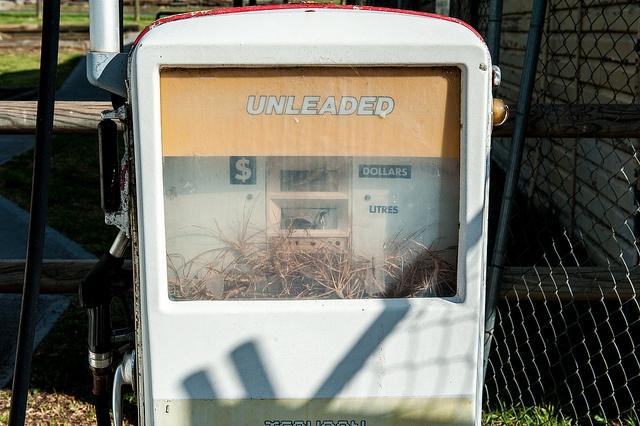
The state of Washington just released a draft rule for a clean fuel standard. This was done under the umbrella of the state’s 2008 goal to reduce greenhouse gas (GHG) emissions. Given that transportation accounts for nearly half of the state’s GHG emissions, it is an obvious choice for specific action.
The new rule is modeled after the California law that was adapted under Republican Gov. Arnold Schwarzenegger, which mandates a declining proportion of fossil content in transportation fuels. That rule directs suppliers toward a targeted 10 percent reduction in GHG emissions by the year 2020.
Gov. Jay Inslee's Executive Order 14-04 directed the Office of Financial Management to prepare a report evaluating “the technical feasibility, costs and benefits, and job implications of requiring the use of cleaner transportation fuels.” This new report is an update to a report prepared in 2009, reflecting numerous changes that have occurred in the past five years.
The report evaluated four scenarios. Each one is representative of the diversity of options that could be taken to reduce emissions.
These included:
- Scenario A -- Advanced vehicles: Compliance achieved primarily through “ZEV Mandate” levels of electric and hydrogen fuel cell vehicles, and a 50 percent increase in new vehicle market shares for compressed natural gas. To supplement the low carbon-intensity fuels consumed by these vehicles, a balanced mix of additional low-carbon biofuels was utilized.
- Scenario B -- Cellulosic biofuels: Compliance achieved with current levels of advanced vehicles and mixed biofuels in the early years, transitioning to cellulosic ethanol and cellulosic gasoline in later years.
- Scenario C -- Minimum cellulosic E85: As above, compliance is achieved using more volumes of conventional biofuels. To consume this volume of ethanol, flex fuel vehicles consume E85 (85 percent ethanol) rather than gasoline.
- Scenario D -- Minimum cellulosic E15: Same as above but by increasing ethanol only from 10 percent to 15 percent using conventional vehicles.
Each scenario results in a different fuel usage portfolio. Without changing anything, fuel economy is expected to improve by 13 percent in light-duty vehicles, based on federal mandates. This additional state action will improve fuel economy an additional 4 to 11 percent depending on which scenario is followed in the interval from 2016 to 2023. Consumption of biodiesel is about the same in each of the scenarios, though ethanol use (non-cellulosic) is considerably higher in scenarios C and D. Cellulosic, or non-food based, ethanol is highest in scenario B.
Scenario C reduces gasoline consumption by 5 percent in 2023, which grows to 11 percent in 2026. Scenario D grows from a 6.5 percent decrease in 2023 to a 12.5 percent decrease in 2026. Somewhat surprisingly, the GHG reduction of all four scenarios converges to somewhere around 3.1 to 3.4 percent by 2026 relative to business as usual. The economic impact of implementing this type of program is negligible compared to the gross state product (GSP).
The proposed rule will not dictate which path suppliers must follow, but it will require a GHG reduction from fuels beginning with 0.25 percent in 2017, which would grow, following California’s lead, to a 10 percent reduction by 2025.
An economic analysis shows that switching to locally-produced biofuels has a significant positive impact on the state’s economy when compared with importing fossil fuels from outside the state. The sectors that stand to gain the most are construction, manufacturing, real estate and retail, based on a “directional change of the buying power of consumers and businesses.” Benefits to the state economy could be as high as $140 million.
A more in-depth analysis is being performed by the Puget Sound Clean Air Agency. If this study takes into account the benefits of avoided greenhouse gas emissions, improvements in public health and increased energy security, the numbers will be considerably higher. A study along these lines, of the impact of California’s Low Carbon Fuel Rule, undertaken by ICF International, found benefits ranging from $500 million to $3.26 billion.
It seems clear that the deeper you dig, the more benefits there are to be found, though a standardized cost-benefit methodology is sorely needed.
Image credit: Claudia: Flickr Creative Commons
RP Siegel, PE, is an author, inventor and consultant. He has written for numerous publications ranging from Huffington Post to Mechanical Engineering. He and Roger Saillant co-wrote the successful eco-thriller Vapor Trails. RP, who is a regular contributor to Triple Pundit and Justmeans, sees it as his mission to help articulate and clarify the problems and challenges confronting our planet at this time, as well as the steadily emerging list of proposed solutions. His uniquely combined engineering and humanities background help to bring both global perspective and analytical detail to bear on the questions at hand. RP recently returned from Abu Dhabi where he attended the World Future Energy Summit as the winner of the Abu Dhabi blogging competition.
Follow RP Siegel on Twitter.

RP Siegel (1952-2021), was an author and inventor who shined a powerful light on numerous environmental and technological topics. His work appeared in TriplePundit, GreenBiz, Justmeans, CSRWire, Sustainable Brands, Grist, Strategy+Business, Mechanical Engineering, Design News, PolicyInnovations, Social Earth, Environmental Science, 3BL Media, ThomasNet, Huffington Post, Eniday, and engineering.com among others . He was the co-author, with Roger Saillant, of Vapor Trails, an adventure novel that shows climate change from a human perspective. RP was a professional engineer - a prolific inventor with 53 patents and President of Rain Mountain LLC a an independent product development group. RP was the winner of the 2015 Abu Dhabi Sustainability Week blogging competition. RP passed away on September 30, 2021. We here at TriplePundit will always be grateful for his insight, wit and hard work.














